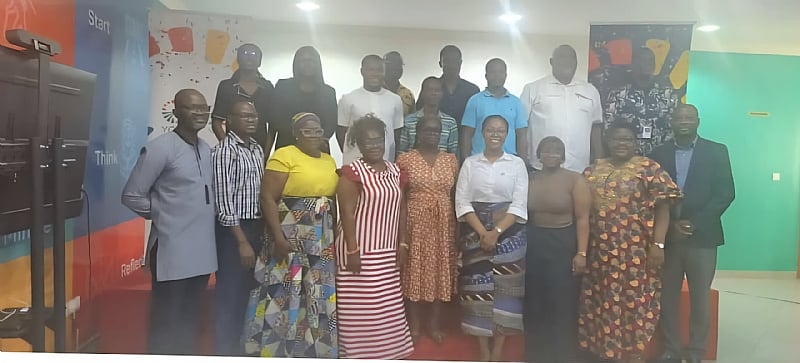The Youth Employment and Skills Pact (YES Pact), a pan-African initiative dedicated to bolstering youth employment and skills development, is actively engaged in shaping Ghana’s educational landscape. Focusing on collaborative engagement, the YES Pact, spearheaded by the Africa Centre for Economic Transformation (ACET) and implemented in Ghana by Youth Opportunity and Transformation in Africa (YOTA), works alongside governmental bodies, integrating the perspectives of youth, technical experts, and industry stakeholders into policy formulation. This participatory approach aims to ensure that policies are not only effective but also resonate with the needs and aspirations of the young population, who are the ultimate beneficiaries of these initiatives. A key element of this engagement is the Knowledge Café platform, which fosters youth involvement in policy discussions and the creation of impactful knowledge products, such as policy briefs and newsletters, that inform and influence policy decisions.
The YES Pact’s recent Knowledge Café in Ghana centered on the nation’s nascent ICT in Education Policy, a crucial framework still under development. This policy seeks to integrate information and communication technologies into the educational system, aiming to enhance learning outcomes and prepare students for the demands of the digital age. The Knowledge Café served as a vital forum for stakeholders to discuss and contribute to the policy’s development, ensuring that it is comprehensive, inclusive, and aligned with the realities on the ground. Concurrent with the ICT policy, the Guidance and Counselling Policy also made significant progress, further underscoring Ghana’s commitment to holistic educational reform. Both policies are anticipated to be submitted to Cabinet for approval in the near future, marking a significant step towards their implementation and the transformation of Ghana’s educational system.
A core theme emerging from the Knowledge Café discussions was the importance of language inclusion in digital education. Eric Safro, Team Lead for Skills and Innovation at YOTA and coordinator for YES Pact in Ghana, emphasized the need to consider Ghana’s linguistic diversity when designing and implementing digital learning platforms. Recognizing that language can be a barrier to accessing educational resources, Mr. Safro advocated for incorporating local languages into digital learning materials, ensuring that technology serves as a bridge rather than a barrier to education. This approach echoes the broader goal of inclusivity, ensuring that all learners, regardless of their linguistic background, can benefit from the opportunities presented by digital education.
The discussions also highlighted the critical need for alignment between education policy and industry demands. Sammy Amegayebo, Executive Director of the Ghana Real Estate Developers Association (GREDA) and Chair of the Sector Skills Body for Construction, stressed the importance of industry involvement in shaping educational strategies. As the ultimate recipients of skilled graduates, industries are best positioned to understand the specific skills and competencies required in the workforce. By actively participating in policy development, industries can ensure that education and training programs equip young people with the relevant skills, fostering a seamless transition from education to employment. This synergy between education and industry is crucial for maximizing the impact of skills development initiatives and driving economic growth.
While embracing the potential of language inclusion in digital education, Mr. Amegayebo also acknowledged the practical complexities of implementing such strategies in a linguistically diverse nation like Ghana. With over 40 languages spoken across the country, a multi-pronged approach might be necessary to effectively address the language barrier. He suggested a dual-language system, incorporating both local and international languages, as a potential solution. This pragmatic approach recognizes the need to balance inclusivity with the practical considerations of implementation, paving the way for a more nuanced and effective strategy for incorporating local languages into digital learning.
The YES Pact’s work in Ghana exemplifies a collaborative and youth-centric approach to policy development. By bringing together government officials, private sector representatives, youth leaders, and technical experts, the initiative creates a platform for diverse perspectives to inform policy decisions. This inclusive approach ensures that policies are not only well-informed but also resonate with the needs and aspirations of the target population. Furthermore, the focus on youth engagement empowers young people to become active participants in shaping their own future, contributing to the development of sustainable and impactful policies that drive economic growth and social progress across the continent. The YES Pact’s ongoing efforts in Ghana and other African countries demonstrate the transformative potential of collaborative partnerships in addressing the complex challenges of youth employment and skills development.


